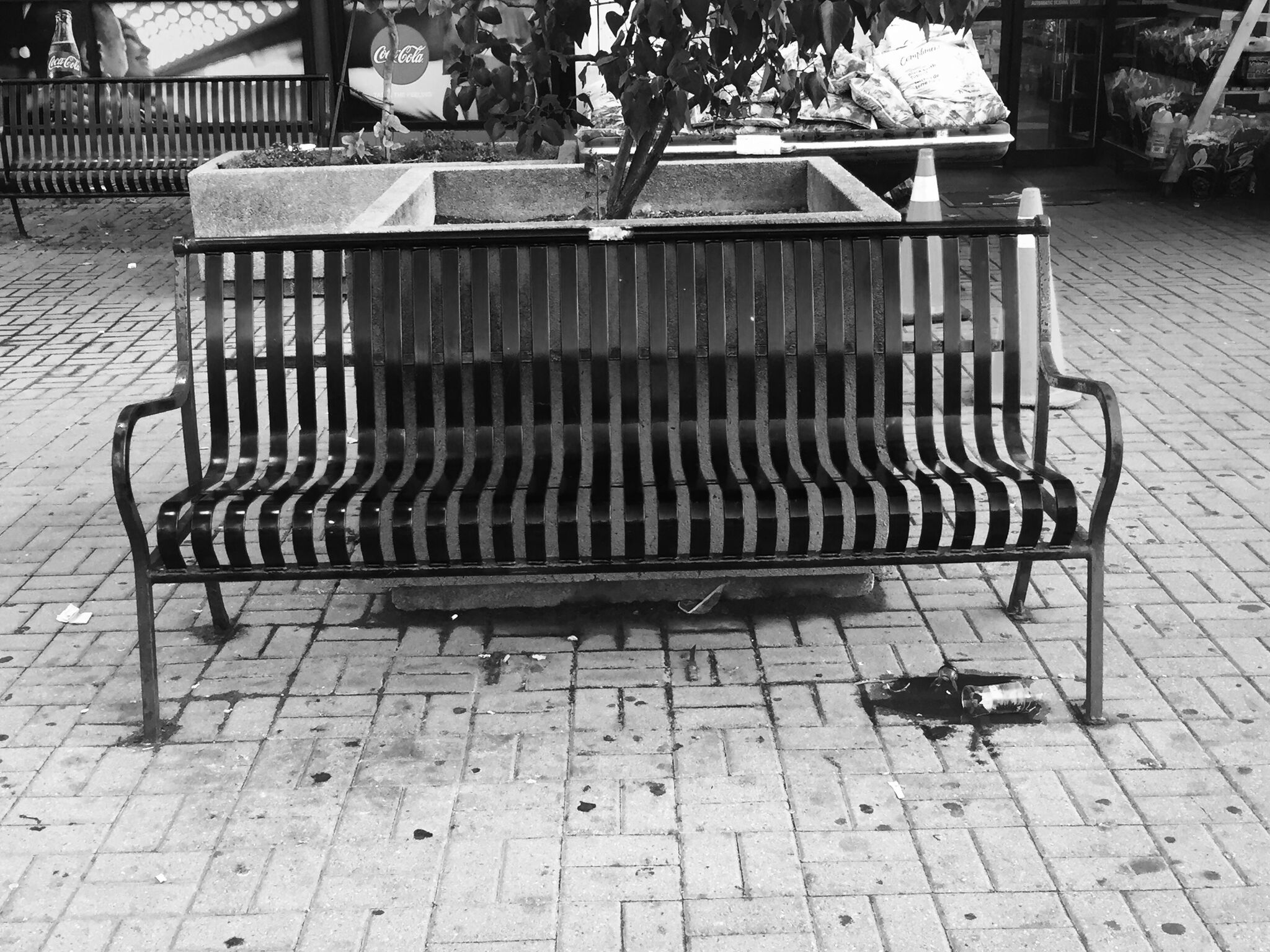Mental illness and homelessness: an invisible injustice
As I walk with the weekday crowds of Bloor Street around 5 pm, a man’s urgent cry breaks through the din. “Somebody help her!” he yells. I look around, a sense of urgency overtaking me, and it doesn’t take long to spot who he’s referring to.
She looks to be in her mid-fifties, maybe older. She wears a light blue cotton blouse, and sits on a green bench outside of G’s. She’s screaming, and on the floor beneath her are shards of broken glass. At first I think she is injured. “What’s wrong? What’s going on?” I stand at a distance. She hits herself, punches her own throat, and I watch the pale skin grow red. She tells me that she dropped her drink, and it broke. She has no money to pay for more. I rush into G’s and bring her a new drink, which seems to calm her down, but I can’t help but wonder if she will be okay after that. I realize I really don’t know what to do. I can’t think of a single number to call to get her help or treatment. I feel totally powerless.
During the month of September, while many of us were participating in orientation week activities, settling into residence, and beginning our new classes, the city of Toronto’s shelter census reported that an average of 4,157 people checked in, filling these facilities to near capacity. This does not include the many homeless people still spending their nights sleeping in the streets, many of whom we students encounter on a daily basis. CAMH estimates that as high as 67 per cent of homeless people in Canada also report suffering from one or more mental health conditions.
Many of these individuals face housing instability as a result of what a 2014 document released by Canadian parliament refers to as a “revolving door pattern of care,”in which the individual is unable to maintain employment due to episodic hospitalizations and institutionalized ableism on the part of employers and landlords.
Even more troubling is the cyclical relationship between homelessness and mental illness. Often, the stressors associated with living on the streets can exacerbate existing mental illnesses and cause an already vulnerable person to develop a second concurrent condition, which can often take the form of substance abuse. This only serves to heighten the stigma faced by the individual, and has created barriers for people trying to receive residential mental health and addiction services. In an effort to avoid this barrier, the United States and Canada now mainly utilize the empirically backed “Housing First” approach, in which mentally ill individuals struggling with housing instability are placed in residential programs. This has been known to reduce the rate at which these individuals are incarcerated and increase the rate at which they are able to reintegrate into society and find employment.
A number of such programs exist in Toronto, but many people both on the streets, and those who would like to help them, are not aware of what’s out there. In order to combat this, I have created a list of some of the best local services available to these individuals, which can be cut out and stored in your wallet. Note: please approach such individuals only with extreme caution, and use your best judgment to stay safe. If you believe that you or others may be in danger, please call appropriate law enforcement.
Toronto Mental Health and Housing Resources Hotlines:
Canadian Health Helpline: 1-866-531-2600
Canadian Mental Health Association Toronto Branch: 416-789-7957
Distress Centres Toronto: 416-408-4357
Residential Programs:
Gerstein Crisis Centre
This centre has two locations, each just under 20 minutes from campus by TTC, located at 100 Charles Street East, and 1045 Bloor Street West. This service is focused on assistance in immediate psychological crisis. They have a crisis hotline to reach a mobile team who can come talk to the person face-to-face at an arranged location. They also have short-term residential facilities for people experienc-ingpsychological crisis, and care for those experiencing substance abuse-related emergencies. They can be reached at 416-929-5200
Street Haven
Located at 87 Pembroke Street near Allan Gardens Conservatory, . Street Haven provides both short and long-term housing paired with mental health support exclusively for women. Long-term supportive housing is focused on building independence and leadership skills. The short-term or emergency shelter, on the other hand, offers assistance in finding and maintaining housing, free educa-tion, and addiction services. They can be reached toll-free at 1-844-967-6060
Image curtesy of Megan Cramer
